[1] Barefoot Doctor's Manual- 1977 Prepared by the Revolutionary
Health Committee of Hunan Province. Original Chinese manual- Victor W. Sidel.
Originally published by Dr Joseph Quin and the Fogarty International centre, Bethdesda
(1974). Madrona Publishers Seattle Washington ISBN 0-914842-52-8
[2] A Complete English Dictionary of Medicinal Terms in Chinese Acupuncture and
Herbalism 1981 - Henry Lu Chinese Foundations of Natural Health- The Academy of
Oriental Heritage, Vancouver, Canada.
[3] Chinese System of Food Cures Prevention and Remedies. 1986 Lu, Henry. Sterling
Publishing Co., Inc. New York. USA. Distributed in Australia by Capricorn Book
Co. Pty Ltd. Lane Cove, NSW. ISBN 0-8069-6308-5.
[4] Medicated Diet of Traditional Chinese Medicine - Chief Editor- Hou Jinglun.
Associate Editors- Zhao Xin, Li Weidong, Liu Jianxin, Geng Chun-e, Li Guohua,
Li Shaohua. Geijing. Science & Technology Press 1994. ISBN 7-5304-1735-5/R.
309.
[5] Herbal Compendium, The ultimate. A desktop guide for herbal
prescribers (2007). Bone, Kerry Phytotherapy Press Warwick Queensland 4370 ISBN
9780646476025.
[6] Chinese System of Food Cures Prevention and Remedies. 1986
Lu,
Henry. Sterling Publishing Co., Inc. New York. USA. Distributed in Australia by
Capricorn Book Co. Pty Ltd. Lane Cove, NSW. ISBN 0-8069-6308-5.
[7] Translation notes from Gary Seiford and Hocu Huhn - NSW College of Natural
Therapies. Sydney Australia (1982).
[8]
chineseherbinfo.com
Images
1.
no.wikipedia.org
by Gold Bernard CC BY-SA 3.0
2.
silkoilofmorocco.ca
3.
innerpath Public domain
4.
hao.ymt360.com
5.
mdidea.com
6.
herbalshop.com Citrus
tangerina. C. erythrosa 柑
橘
Gān jú Tangerine
Family: Rutaceae
Citrus
tangerina. C. erythrosa 柑
橘
Gān jú Tangerine
Family: Rutaceae
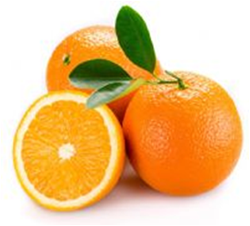
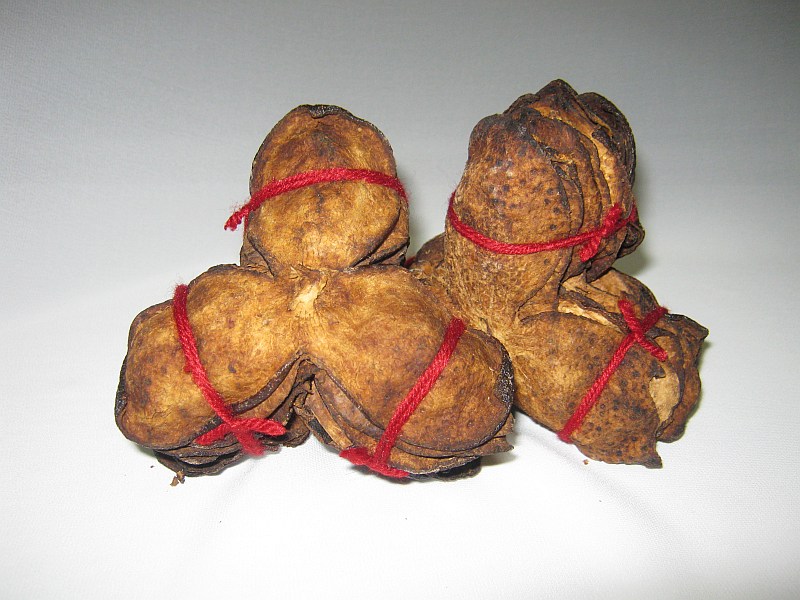 陳 皮
Chén pí- Chen pi is aged (cured) to increase the spicy flavor and
eliminate secondary effects. Generally, the older the Chen pi, the higher the
quality and the more effective.[8] Commonly
sold Chen pi is 3 years old.
陳 皮
Chén pí- Chen pi is aged (cured) to increase the spicy flavor and
eliminate secondary effects. Generally, the older the Chen pi, the higher the
quality and the more effective.[8] Commonly
sold Chen pi is 3 years old. 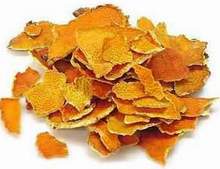
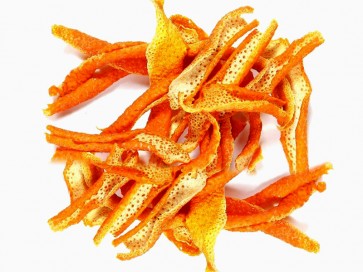 橘
紅 Jú hóng-
Just the red part of the peel- outermost peel- rind
橘
紅 Jú hóng-
Just the red part of the peel- outermost peel- rind
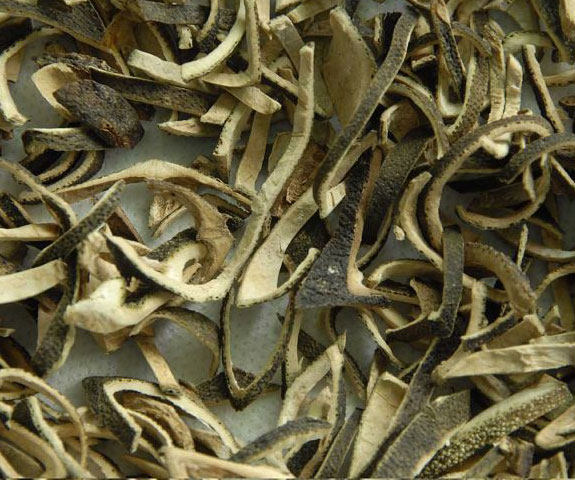 青 皮
Qīng pí
Skin of green Tangerine or Mandarin peel
青 皮
Qīng pí
Skin of green Tangerine or Mandarin peel